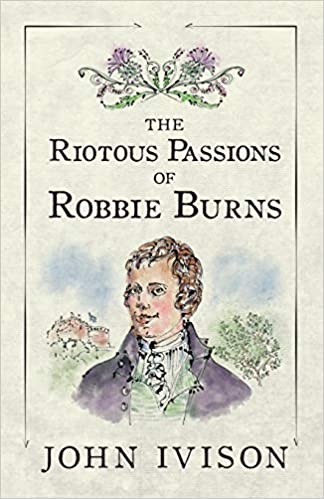Atun-Shei Films
Published 15 Jan 2021Let’s gossip about a man who’s been dead for 158 years.
Support Atun-Shei Films on Patreon ► https://www.patreon.com/atunsheifilms
Leave a Tip via Paypal ► https://www.paypal.me/atunsheifilms
Buy Merch ► teespring.com/stores/atun-shei-films
#ThomasJJackson #CivilWar #AmericanHistory
Original Music by Dillon DeRosa ► http://dillonderosa.com/
Reddit ► https://www.reddit.com/r/atunsheifilms
Twitter ► https://twitter.com/atun_shei
~REFERENCES~[1] Wallace Hettle. Inventing Stonewall Jackson: A Civil War Hero in History and Memory (2011). LSU Press, Page 3-9
[2] Hettle, Page 13-17
[3] Charles Royster. The Destructive War: William Tecumseh Sherman, Stonewall Jackson, and the Americans (1991). Vintage Books, Page 41-46
[4] Royster, Page 52-53
[5] Hettle, Page 20-21
[6] Royster, Page 65-67
[7] Chris Graham. “Myths and Misunderstandings: Stonewall Jackson’s Sunday School” (2017). The American Civil War Museum https://acwm.org/blog/myths-misunders…
[8] Royster, Page 63-65
[9] Royster, Page 60
[10] Royster, Page 49-51
[11] Mary Anna Jackson. Memoirs of Stonewall Jackson by his Widow, Marry Anna Jackson (1895). Prentice Press, Page 108
[12] Jackson, Page 120-121
[13] Hettle, Page 13-15
[14] Royster, Page 202
January 16, 2021
Inside the Neurotic Mind of Stonewall Jackson
Fables and Folktales: The Snow Queen
Overly Sarcastic Productions
Published 15 Jan 2021Welcome to 2021! It’s cold, it’s been a hell of a journey, and sometimes it feels like we’re being pelted by shattered glass. What story could’ve possibly fit the bill so perfectly?
Disney really missed an opportunity when they decided Frozen was going to have exactly nothing in common with the original story. Honestly that kind of analysis could be worth a video all on its own …
It’s myth-y enough I’m still gonna put it in the same playlist, but it would’ve felt disingenuous calling it a myth, soooooo
Our content is intended for teenage audiences and up.
PATREON: https://www.Patreon.com/OSP
PODCAST: https://overlysarcasticpodcast.transi…
DISCORD: https://discord.gg/osp
MERCH LINKS: http://rdbl.co/osp
OUR WEBSITE: https://www.OverlySarcasticProductions.com
Find us on Twitter https://www.Twitter.com/OSPYouTube
Find us on Reddit https://www.Reddit.com/r/OSP/
Howard Anglin reviews The Riotous Passions of Robbie Burns
The Line now apparently also does book reviews:
I don’t know what I was expecting before I picked up John Ivison’s new book, The Riotous Passions of Robbie Burns, but it was not this. In my head, I’d already started composing the end of my review. Something round and pat and full of holiday hygge like: “So light the fire, pour yourself a dram of Annandale whisky, and enjoy …” Because Ivison grew up in Dumfries, where Burns spent the last years of his life, I suppose I expected a more personal narrative, not a work of historical fiction. One expects fiction from political journalists in their day jobs, not in a labour of love composed off the clock.
What I really expected was more of Burns’ poetry — the source of his enduring fame, after all — and less of his person, which was the source of his contemporary infamy. Instead, Ivison gives us something more interesting and unusual: the poetry of Burns’ non-poetic speech. Ivison has taken snippets, and sometimes cribbed whole paragraphs from, Burns’s copious surviving correspondence and woven them into dialogue that carries the story of the poet’s stay in Edinburgh between 1786 and 1788. By putting Burns’ actual words into his mouth, even if sometimes out of context, Ivison gives the reader a direct and plausible impression of Burns the man. We hear verbatim both the coarse tavern wit and the elemental passion that spilled into his prolific verse — sometimes into unprintable doggerel (literally: his poems later collected as The Merry Muses of Caledonia were banned as obscene in the U.K. until 1965), sometimes into achingly beautiful verses like “Flow gently, sweet Afton” or “Ae Fond Kiss.”
Ivison’s book sets us in Edinburgh at a time when, as he writes, “it was said if you stood at the Mercat Cross with a pistol, you could hit 50 geniuses, 50 bankers, 50 lawyers and 50 rogues at any given hour” (no doubt allowing for some overlap between latter two categories). Our narrator and guide is the newly-arrived and impressionable young lawyer’s apprentice, John Bruce, a composite and Zelig-like stand in for many young men of the poet’s acquaintance. (The only record of Burns meeting a John Bruce that I can find was a Rev. John Bruce, Minister of the Highland town of Forfar, whom the poet found “pleasant, agreeable and engaging.”) Through Burns, Bruce and the reader are introduced to the ways of women, drink, the printing business, drink, aristocratic libertinism, and a little more drink.
The two main plots, such as they are, link Bruce and Burns to the notorious escapades of Deacon Brodie, whom Burns met in real life, and to the poet’s long, futile, but apparently sincere courtship of the unhappily-married Agnes (sometimes Nancy) Maclehose. The real life letters between Burns and Maclehose, written under the pseudonyms “Sylvander” and “Clarinda,” make for moving reading and, in this telling, for surprisingly convincing dialogue between Burns and Maclehose and between Burns and Bruce. The text is especially affecting when the poet is in the grip of what he called his “low spirits & blue devils” and his usually florid speech turns fatalistic, brooding, and palpably human.
But the plots are not the point of this charming book; they are frames on which to hang Burns’s words and excuses to showcase Edinburgh as it was coming of age as an intellectual and commercial capital, with all the growing pains that entailed. Filling the city with historical characters, Ivison shows us the city as Burns found it, its population bursting out of the overbuilt medieval closes and wynds that lined the Royal Mile running down the hill from the castle and spreading across the North Bridge to New Town and down to the sea port at Leith.
M2 Carbine: Assault Rifle or Submachine Gun?
Forgotten Weapons
Published 23 Mar 2017The M2 Carbine was a mechanically simple modification of the M1 Carbine to allow fully automatic fire. The fire prototypes of the M1 Carbine had actually been selective-fire guns, but that requirement had been dropped by the time the Winchester design was officially adopted as the M1. It was a feature quickly requested by troops once the Carbine entered active service, though.
In 1944 the US Army acknowledged this, and introduced the M2. A total of 217,000 were manufactured at the end of WW2, and did see limited service on Okinawa — and then extensive use in the Korean War and Vietnam War.
The M1 Carbine has long generated controversy among those attempting to rigidly define its role, as it falls awkwardly between the notion of submachine gun and assault rifle, firing a cartridge that is clearly more powerful than a pistol round but equally clearly less powerful than an intermediate rifle round. Its originally intended role was as a personal defense weapon more effective than the 1911 pistol, and in service it always scored high marks for handiness and poor marks for combat effectiveness. The opinion of soldiers using the Carbine in either its M1 or M2 form was very much dependent on what role they expected it to serve.
In my opinion, its light weight and stock design make it a sub-optimal submachine gun, and its light cartridge makes it a sub-optimal assault rifle. But if you need a light and handy carbine to carry a lot and only use in emergencies, it is hard to beat for its time.
http://www.patreon.com/ForgottenWeapons
Cool Forgotten Weapons merch! http://shop.bbtv.com/collections/forg…
If you enjoy Forgotten Weapons, check out its sister channel, InRangeTV! http://www.youtube.com/InRangeTVShow
QotD: Make companies product-focused again
When I go to a coffee shop or a bank, I am not interesting in their views about politics or social issues, indeed, I actively do not want to know. I just want a fucking coffee or to arrange something financial (hopefully not confusing the two). If they want to tell me about how yummy their products are because their beans are lovingly rubbed with civet poo, or how well they are looking after their depositors’ money, that is fine.
But pretty much anything else … please just STFU unless it is directly related to the business. I get that certain “life style” brands might want their logo in a Formula One car or on Eddie Izzard’s frock. But I am not interested in how inclusive the local bookstore is, nor do I want to hear that an auto-parts shop is proud of the blasted NHS.
I do not even want any companies declaiming how much they support causes I like, let alone ones that I either oppose or which just make me roll my eyes at the sheer presumption of their marketing department. For me, this is negative marketing. I already avoid certain shops and restaurants that prominently display their “social awareness” to me: they are actually doing the opposite, emphasising that I am not their target market. So I take them at their word and if I can easily get what they sell elsewhere from someone who doesn’t, that is what I always do.
Make companies product-focused again.
Perry de Havilland, “Make companies product-focused again”, Samizdata, 2020-09-30.







